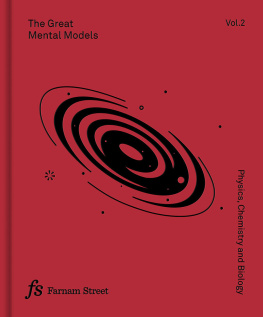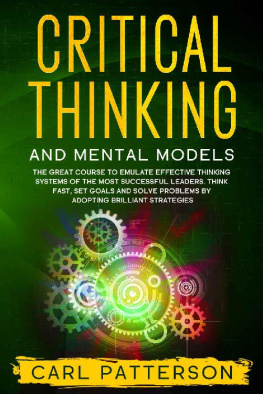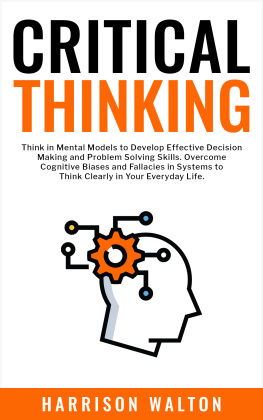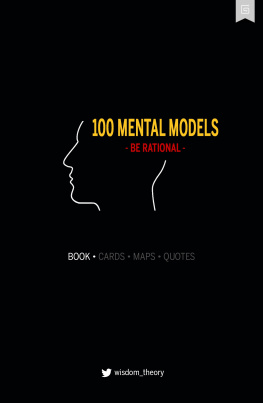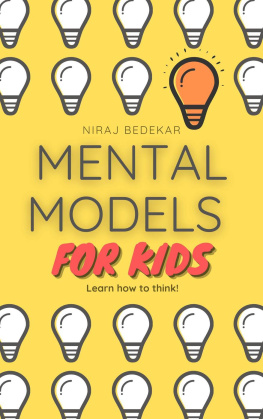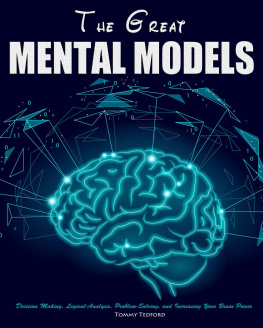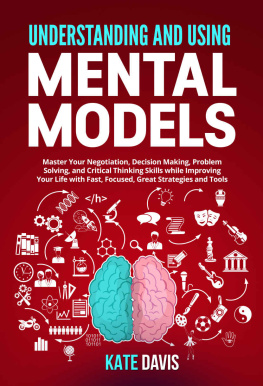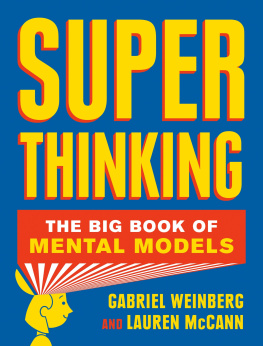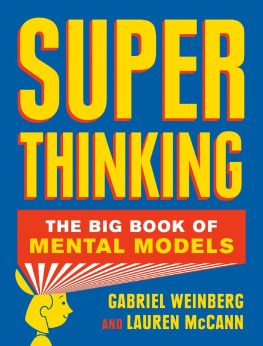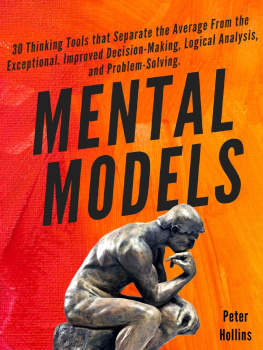Farnam Street is devoted to helping you develop an understanding of how the world really works, make better decisions, and live a better life. We address such topics as mental models, decision-making, learning, reading, and the art of living.
In a world full of noise, Farnam Street is a place where you can step back and think about time-tested ideas while asking yourself questions that lead to meaningful understanding. We cover ideas from science and the humanities that will not only expand your intellectual horizons but also help you connect ideas, think in multidisciplinary ways, and explore meaning.
Headquartered in Ottawa, Canada, and run by Shane Parrish, we operate around the globe and have helped millions of people master the best of what other people have already figured out.
fs.blog
The quality of your thinking depends on the models that are in your head.
This is a statement we strongly believe in at Farnam Street. This conviction drives much of what we do.
When you learn to see the world as it is, and not as you want it to be, everything changes. The solution to any problem becomes more apparent when you can view it through more than one lens. Youll be able to spot opportunities you couldnt see before, avoid costly mistakes that may be holding you back, and begin to make meaningful progress in your life.
Thats the power of mental models. And thats why we created the Great Mental Models project.
The Great Mental Models Project is a labor of love to help equalize opportunity in the world by making a high-quality, multidisciplinary, interconnected education free and available to everyone. Thats a big ambition. To get there, were starting with five reference books that cover core mental models from major disciplines: Biology, Physics, Chemistry, Economics, Systems and more. We have gathered these timeless individual ideas into a coherent whole.
Along with the books, were developing additional tools and resources to help readers more readily connect the models in their heads, so their use becomes second nature. By purchasing this book, you make it possible for us to continue our efforts and see this initiative through to completion. Were grateful for your support. If youd like to learn more about the Great Mental Models project, please visit FS.blog/tgmm
Published by Latticework Publishing Inc. under license from Farnam Street Media Inc.
PO BOX 14037, RPO Glebe, Ottawa, ON K1S 3T2
Copyright: Farnam Street Media Inc.
Creative Direction by Morgwn Rimel
Designed and typeset by FLOK, Berlin
Illustrations by Marcia Mihotich, London
Printed in Latvia by Livonia Print
Ebook by Bright Wing Books
All rights reserved.
A portion of this work has appeared online at fs.blog.
While every effort has been made to contact copyright holders, if we have overlooked anything please let us know. This book wouldnt be possible without the insights of others. The goal of FS is to master the best of what other people have figured out. True to this mission, everything in here began with someone else.
Any reproduction of this book requires written permission.
www.fs.blog
ISBN: 978-1-9994490-0-1
Contents
Landmarks

_
The key to better understanding the world is to build a latticework of mental models.
The People Who Appear in the Preface
Munger, Charlie (Charles),
1924 - American investor, businessman and philanthropist. Vice-Chairman of Berkshire Hathaway. Avid proponent that elementary, worldly wisdom and high ethical standards are required in business.
Buffett, Warren,
1930 - American investor, businessman and philanthropist. Chairman and CEO of Berkshire Hathaway. Often referred to as the Oracle of Omaha, he is considered one of the most successful investors in the world.
Preface
Education doesnt prepare you for the real world. At least, it didnt prepare me. I was two weeks into my job at an intelligence agency on September 11, 2001 when the world suddenly changed. The job I had been hired to do was no longer the one that was needed. I had a computer science degree; I came from a world of 1s and 0s, not people, families, and interpersonal dynamics. I was thrust into a series of promotions for which I had received no guidance, that came with responsibilities I had no idea how to navigate. Now I found that my decisions affected not only my employees but their families. Not only my country, but other countries. The only problem? I had no idea how to make decisions. I only knew I had an obligation to make the best decisions I could.
To improve my ability to make decisions, I looked around and found some mentors. I watched them carefully and learned from them. I read everything I could about making decisions. I even took some time off work to go back to school and earn my MBA, hoping that I would finally learn how to make better decisions, as if that was some end state rather than a constantly evolving journey.
My belief that the MBA program was a good use of my time was eroded fairly quickly. When I showed up to write an exam only to find out it was an open book test, I realized my expectations were entirely wrong and in need of updating. Was I in a masters program or grade school? Some days, I couldnt tell. And yet that is where everything changed for me.
I realized that I couldnt fail as long as I knew where the answers were in the books I could bring to the exams. This was actually quite liberating. I stopped putting effort into my assignments and started learning about someone who was casually mentioned in class. That person was Charlie Munger. I went from theoretical examples that were completely divorced from the real world, to the wisdom behind the achievements of one of the most successful businessmen of all time. Munger, who you will come to know in these volumes, is the billionaire business partner of Warren Buffett at Berkshire Hathaway. Hes easy to like: intelligent, witty, and irreverent. Finding Munger opened the door to unexpected intellectual pleasure. I felt like I had finally found knowledge that was useful because it was gained from someones real effort to better understand how the world works. It was so much more satisfying to learn from someone who had tried to put many theories into practice and was willing to share his results. The fact that Munger was so professionally successful made it all the more compelling.
Munger has a way of thinking through problems using what he calls a broad latticework of mental models. These are chunks of knowledge from different disciplines that can be simplified and applied to better understand the world. The way he describes it, they help identify what information is relevant in any given situation, and the most reasonable parameters to work in. His track record shows that this doesnt just make sense in theory but is devastatingly useful in practice. I started writing about my learnings, the result being the website fs.blog. The last eight years of my life have been devoted to identifying and learning the mental models that have the greatest positive impact, and trying to understand how we think, how we update, how we learn, and how we can make better decisions.


